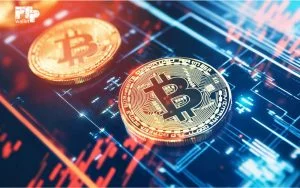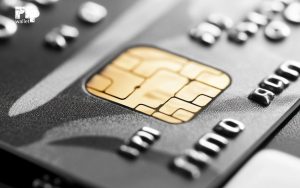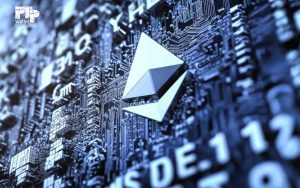DIA (Decentralized Information Asset) is an open-source blockchain-based Oracle platform that provides a transparent ecosystem for market actors to source, share, and supply trusted data. It serves as a reliable and verifiable link between on-chain smart contracts and off-chain data from multiple sources, allowing for the development of a variety of financial dapps. DIA is an environment for conducting open financial data in a financial and smart contract ecosystem.
According to the website, the platform sources all different traditional currencies and fixes rates according to DeFi protocols as well as the pricing of digital assets. The ecosystem also claims that it uses data from numerous reliable sources. DIA offers specialized data streams using specially developed processes and sources. The platform feeds can be customized to match each user’s unique needs to accommodate the demand for various data configurations.
The purpose of DIA is to establish trustworthy communication between data producers, data users, and data analysts. Since DeFi apps depend on solid and scalable data sources, the platform’s goal is to develop dependable solutions while avoiding exploitation and manipulation. The platform also aims to collect, verify, and distribute reliable financial data with the goal of giving the community collective knowledge and crypto-economic incentives.
This Web3 data platform is governed by the Ethereum token known as DIA. The DIA platform’s native cryptocurrency is the DIA token (DIA). It is useful for accessing different services and staking for validators inside the ecosystem. By improving transparency and facilitating the development of novel financial products on blockchain networks, DIA seeks to fulfill the requirement for trustworthy and verifiable data in DeFi applications.
This platform enables connections between smart contracts and external data sources like centralized APIs and DeFi market data. Platform improvements can be suggested and voted on using DIA.
Overall, the main goals of DIA are to gather, verify, and source data from a variety of sources, including traditional financial institutions, cryptocurrency exchanges, and other data suppliers. And to guarantee the reliability and accuracy of the data, the platform makes use of a decentralized network of validators.
Who are the founders of DIA (DIA)?
Paul Claudius, Samuel Brack, and Michael Weber founded DIA (Decentralized Information Asset). They are a group of seasoned experts with experience in data analytics, finance, and blockchain technology.
The CEO of DIA is Michael Weber. He formerly worked at the crypto asset management company Incrementum AG, giving him extensive experience in the blockchain and digital asset markets. He graduated from the University of Cologne in Germany with degrees in economics and physics, as well as management from the ESCP Business School. Before he turned to cryptocurrencies and launched initiatives like Goodcoin, myLucy, and BlockState, he worked for several banks and financial institutions.
DIA’s COO is Paul Claudius. Having worked at Deloitte and BMW Financial Services, he adds to the team’s experience in finance and business development.
As CTO, Samuel Brack works at DIA. He occupies the same role at BlockState as Claudius and Weber. He graduated from Humboldt University in Berlin with a master’s in computer science, and as of January 2020, he was still pursuing his Ph.D. there.
What is DIA (DIA) used for?
For different decentralized applications, particularly in the area of decentralized finance (DeFi), DIA (Decentralized Information Asset) serves as a decentralized oracle platform that primarily provides accurate and transparent data. By linking smart contracts with real-world data, like price feeds, market data, and other off-chain information, oracles play a significant role in DeFi.
DIA enhances the reliability, transparency, and accessibility of data in the DeFi ecosystem, enabling developers to build more secure and robust decentralized applications.
How is DIA (DIA) unique?
In contrast to other oracle platforms in the blockchain ecosystem, DIA (Decentralized Information Asset) has a number of distinctive qualities. The following are some distinctive qualities of DIA:
- Community-Driven Approach: DIA places a strong emphasis on community involvement and governance. A decentralized and inclusive platform is guaranteed by the ability of token holders to actively participate in decision-making through staking and voting on proposals.
- Data Sourcing and Quality Assurance: To ensure the correctness and dependability of the data it supplies, DIA makes use of cutting-edge algorithms and data quality assurance procedures. Reducing the possibility of inaccurate or manipulated information, this improves the platform’s overall integrity. Also, to obtain data, DIA makes use of a wide variety of data sources, including exchanges, data providers, and crowdsourcing. This multi-source strategy improves data robustness and lessens dependency on any single supplier, strengthening the platform.
- Collaboration and Partnerships: To broaden its data offerings and improve the ecosystem as a whole, DIA actively pursues collaboration and partnerships with other projects, data providers, and industry participants. The blockchain industry benefits from innovation and interoperability because of this cooperative approach.
A premier decentralized oracle platform, DIA stands out for its distinctive combination of community governance, data sourcing, quality assurance, collaboration, and partnership. It meets the particular requirements of the DeFi ecosystem while promoting transparency and dependability.
How many DIA (DIA) coins are in circulation?
It has a maximum quantity of 200,000,000 DIA coins and a circulating supply of 94,287,049 DIA coins.
How is the DIA network secured?
The fact that DIA is an ERC-20 standard coin means it depends on Ethereum and shares all of its advantages and disadvantages. Due to its decentralization and the fact that all transactions are secured by the Ethash proof-of-work algorithm, the Ethereum network is one of the biggest and, consequently, one of the strongest. ERC-20 merely stipulates a set of guidelines by which tokens must abide.
The network utilizes a blockchain infrastructure and its built-in security features to function. Having an open government enables community involvement in decision-making. Regular penetration testing finds and fixes potential vulnerabilities, and bug bounty schemes let the public help secure the network. The strategy used by DIA guarantees the ecosystem’s health and the integrity of the data, offering a safe and dependable Oracle platform for distributed applications.
How do I buy DIA (DIA)?
The DIA token can be used for a wide range of purposes, like staking and payments.
DIA (DIA) tokens can be easily purchased with the following steps.
* Open an account with the crypto trading platform of your choice.
* Transfer the specific amount of your fiat currency to your account.
* Wait for your deposit to be confirmed and buy CNS through your trading account by swapping with BTC, ETH, or USDT pairs.
Which Cryptocurrency Wallet Supports DIA (DIA)?
The PTPWallet platform supports many cryptocurrencies, with DIA soon to be included. Because of its vast use case, PTPWallet has grown to become one of the most popular platforms, as it serves as an exchange and an engine to discover other cryptocurrencies. The platform offers a simple user interface, is supported by both Android and iOS devices, and comes with its own mobile wallet app.
If you’re looking to learn more about PTPWallet and to stay updated on our latest news, be sure to follow us on our social media accounts. You can find us on our channels.
Telegram: https://t.me/ptpwalletnews
Twitter: https://twitter.com/PtpWallet



